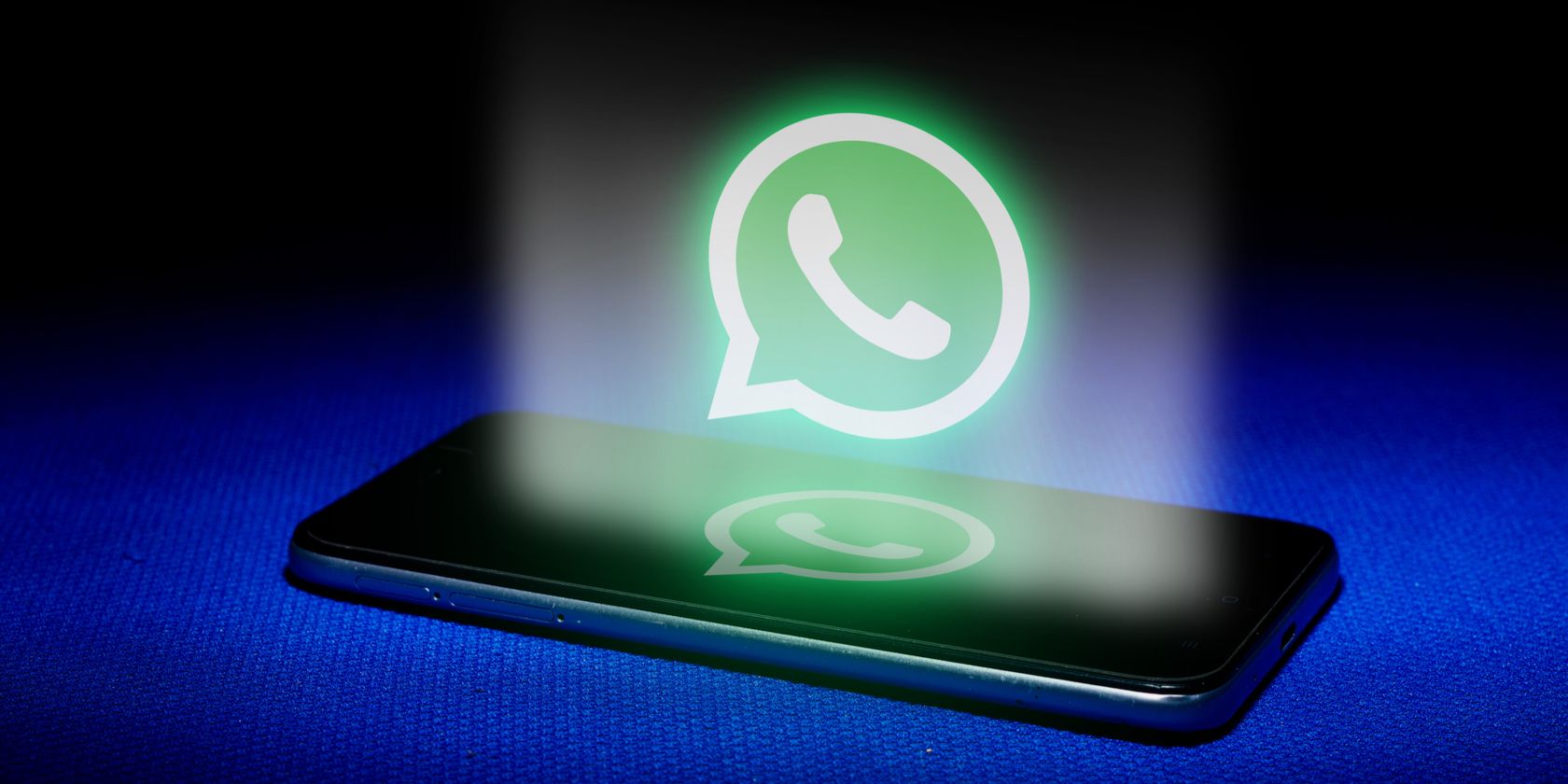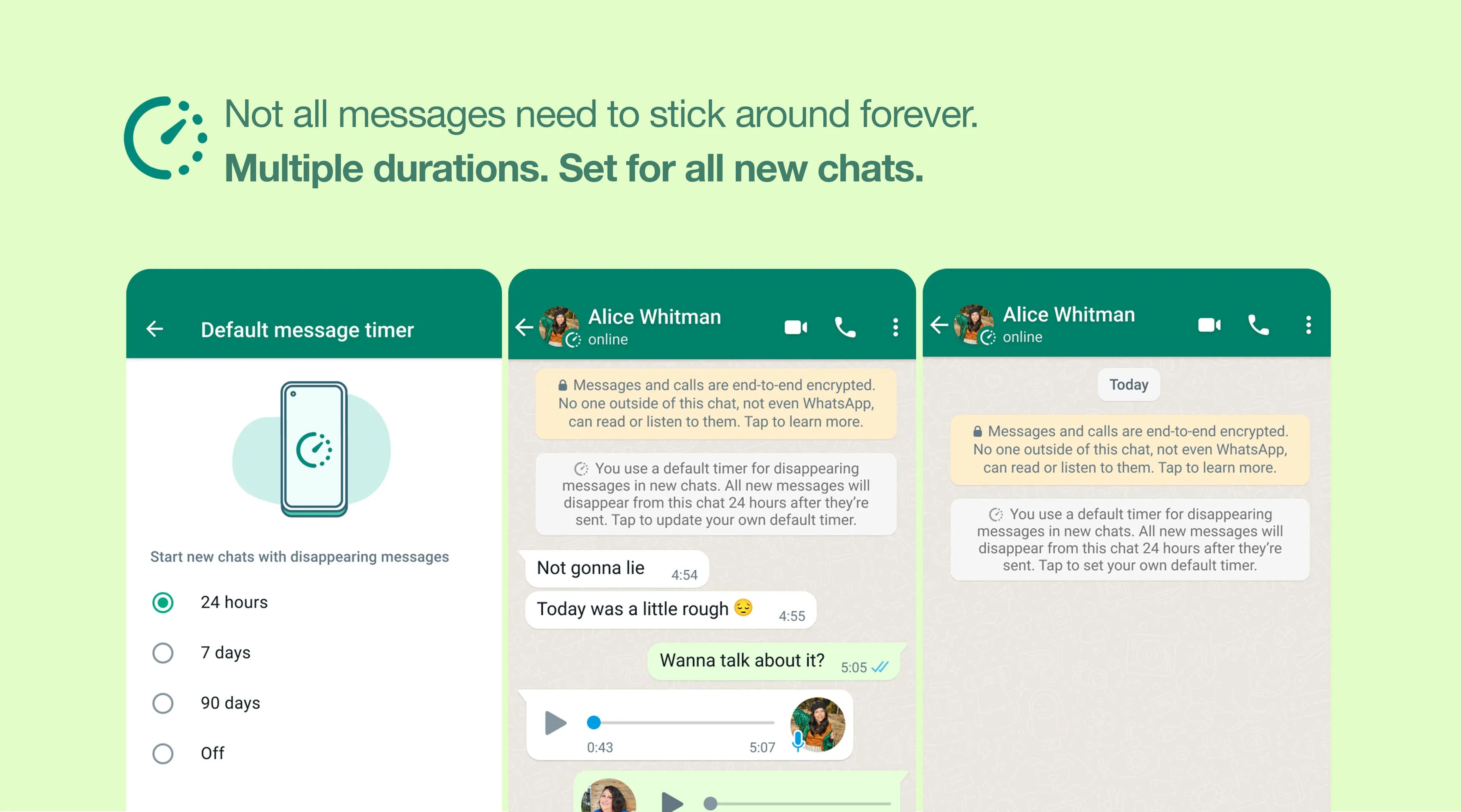WhatsApp has offered disappearing messages for a while, where messages you send and receive vanish after a certain amount of time. The trouble was, you had to enable this for every chat individually.
Now, WhatsApp has rolled out an update that lets you choose to automatically enable disappearing messages for every new chat that you start or receive. It means it's far easier to take control of your privacy on the messaging app.
Your WhatsApp Messages Can Now Disappear Automatically
It's easy to enable disappearing messages on WhatsApp, but you've always had to do it on a per-conversation basis. If you wanted all of your messages across all chats to disappear, you had to manually enable it for each. It was tedious.
Now, as announced on the WhatsApp blog, you can turn on disappearing messages by default for all new chats. This means that new one-on-one chats between you and another person will disappear automatically, regardless of who began the conversation. You can also apply the setting to any new groups you create.
If you choose to enable disappearing messages by default (which you can do via your Privacy settings in the app), a message will display in your chats to let the other person know. This makes it clear that it's a choice you've applied across the board, rather than specifically to them.
The feature is optional and won't retroactively apply to your existing chats. If you want those to have disappearing messages, you'll need to go back and apply the setting.
Plus, even if you enable default disappearing messages, you can still turn it off for individual chats if there are messages inside that you want to keep.
To help make the disappearing messages feature more flexible, WhatsApp now supports 24 hours and 90 days disappearing durations, alongside the existing seven days.
Is WhatsApp Truly Concerned About Privacy?
While it's great to see new privacy features on WhatsApp, don't be tricked into thinking the app has your best interests at heart. Owned by Meta (formerly known as Facebook), the company is far more concerned about how to harvest and monetize your data than anything else.


